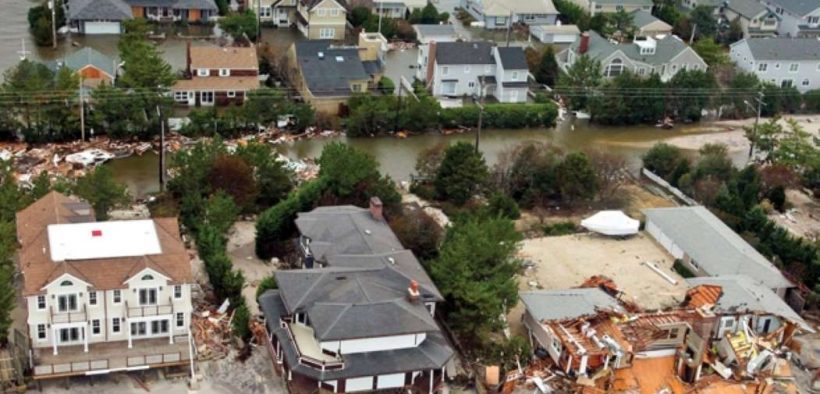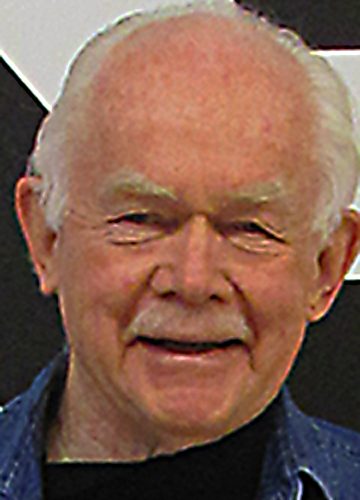Might Some Of Us Be Next?

The issue is not whether our climate crisis is real. It is. The issue is: why do people still think climate change isn’t real?
In one of the responses to my recent op-ed essay Where is the Fire Department, I received some pithy advice from one correspondent. He suggested that “It might be useful to occasionally stop-up your ears and turn your eyes away from media and simply look around yourself at unfiltered reality. If you then see the bodies dropping around you as a consequence of extreme weather events, I will readily concede that you are indeed correct in your article.”
Fortunately, I live in New England where extreme weather events, other than sudden wind storms and flooding, have not caused any human deaths. So I cannot verify to my correspondent that I have personally witnessed “bodies dropping around [me] as a consequence of extreme weather events.” However, from penguins in Antarctica, to butterflies in Spain, honey bees in America and rodents and coral in the Great Barrier Reef, as the world warms these species are disappearing. Might some of us be next?
The World Health Organization
The World Health Organization (WHO) has stated that “although global warming may bring some localized benefits, such as fewer winter deaths in temperate climates and increased food production in certain areas, the overall health effects of a changing climate are likely to be overwhelmingly negative. Climate change affects social and environmental determinants of health – clean air, safe drinking water, sufficient food and secure shelter.”
The WHO estimated that climate change would lead to about 250,000 additional deaths each year between 2030 and 2050, from factors such as malnutrition, heat stress and malaria.
However, a review in The New England Journal of Medicine this past January said this is a “conservative estimate.” And that is because the WHO failed to take into account other climate-related factors that could affect death rates – such as population displacement and reductions in labor productivity from farmers due to increased heat according to study co-author Dr. Andrew Haines, epidemiologist and former director of the London School of Hygiene & Tropical Medicine. The review also stated that the WHO estimate didn’t take into account illnesses and deaths tied to disruptions in health services caused by extreme weather and climate events.
Europe, in addition to other factors, is currently experiencing an influx of climate refugees from Africa. New England is projected to become a destination for people moving from the American south and mid-west to escape the ever-increasing summer heat and its consequences in those regions.
Facts and Values
The issue is not whether our climate crisis is real. It is. The issue is: why do people still think climate change isn’t real?
At its heart, climate change denial is a conflict between facts and values. People deny the climate crisis because, to them, it just “feels” wrong. Acknowledging climate change involves accepting certain facts. But being concerned about climate change requires connecting these facts to values.
Denial happens when climate science rubs us up the wrong way. Instead of making us want to arrest the climate crisis, it makes us resist the very thought of it, because the facts of anthropogenic global heating clash with our personal beliefs and priorities.
It could be that the idea of climate change is a threat to the way we perceive the world. Or it could be that we fear society’s response to climate change, the disruption created by the transition to a low-emissions economy as espoused by the Green New Deal. Either way, climate change becomes such an “inconvenient truth” that, instead of living with and acting upon our worries, we suppress the truth instead by sticking our heads in the sands of denial.
Negating Reality
Climate change denial arises in response to an unimaginable reality by defending oneself against it. Contemporary social psychologists tend to talk about this in terms of “motivated reasoning.” Because the facts of climate science are in conflict with people’s existing beliefs and values, they reason around the facts.
A large and growing empirical literature is exploring what drives denial. The strongest predictor is one’s politics. An international synthesis of existing studies found that values, ideologies, and political allegiances overshadowed other factors. In Western societies, political affiliation is the key factor, with conservative voters more likely to discount climate change. Psychology can contribute to explaining a person’s politics, but politics cannot be entirely explained by psychology. Or can denial.
The Politics of Denial
There is an important distinction between denial that is personal and psychological, and denial that is institutional and organized. The former involves people who deny the facts to themselves, but the latter involves the denial of facts to others, even when these “merchants of doubt” know the truth very well.
It is no secret (anymore) that fossil fuel companies have long known about climate change, yet sought to prevent a wider public understanding. Since 1977 ExxonMobil scientists internally acknowledged climate change even while the corporation mounted an enormous disinformation campaign to sow doubt in the public mind about climate science. The fossil fuel industry has also invested heavily in conservative foundations and think tanks that have paid contrarian scientists to speak against the IPCC findings. Social media has provided corporate deniers an effective medium for spreading disinformation. A recent analysis of anonymized YouTube searches found that videos supporting the scientific consensus on climate change were outnumbered by those that didn’t.
Undoing Denial
“In sum, denial is repressed knowledge” writes David Hall on The Conversation web site. A Senior Researcher in Politics, Auckland University of Technology, Hall writes that “this repression occurs at both the psychological level and social level, with the latter providing fodder for the former. This is a dismal scenario, but it shines some light on the way forward.”
Hall said “it reminds us that deniers are capable of acknowledging the science – at some level, they already do – even though they struggle to embrace the practical and ethical implications. Consequently, climate communications may do well to appeal to more diverse values, particularly those values held by the deniers themselves.”
It goes without saying that not all climate change deniers will be convinced. Some downplay and discount climate change precisely because they recognize that the low-emissions transition will adversely impact their interests or their lifestyle. This is why piling on additional climate science is unlikely to succeed with deniers. Their faculty of reason is motivated to defend itself from revising their beliefs.
What will make a difference as we are beginning to see from the school strike movement inspired by Greta Thunberg and other growing public protests is the power of the people. Public surveys are showing that throughout the world, deniers are in the minority. The worried majority doesn’t need to win over not getting the “message” about the reality of our climate crisis to every single person. Planet earth is sending us signals that have convinced millions of people that we are in for a rough ride.








Thanks for this accounting of the denialist problem, ending accurately with “What will make a difference […] is the power of the people. Public surveys are showing that throughout the world, deniers are in the minority.” To this I would add that, as a practical matter, the increasing actions by people on the ground, organized now in the millions, are STILL being ignored by the indifferent, Trump obsessed U.S. mainstream media. This is a problem that has to be resolved. Increased, sustained media attention is critical if we expect to make climate and environment top political 2020 issues. All the networking and public boots-on-the-ground activism just aren’t working in this regard. My belief is that a seriously coordinated, movement-wide climate PR & media strategy to force network attention to the issues is necessary. As of now there is no such project. I have a few ideas if you are interested.
Hi John, From Kenneth Thomas.It is my experience that not being in denial has the consequence of being in confrontation mode in almost every social encounter. That being wholesome in one’s lifestyle and ambitiously wanting that for one’s offspring will put one in conflict with much of humanity, especially those in the USA. There are lots of issues that humans don’t want to first research, and once they have they may not want to be responsible for what they’ve found out. Especially if that knowledge, and the responsible action concerning that knowledge puts them in conflict with the state, and religious organizations and people in power in those organizations. So humans easily and cowardly go into denial mode. Then talk about things like the weather, even when they have little serious interest in meteorology, and the current weather is not an immediate concern.